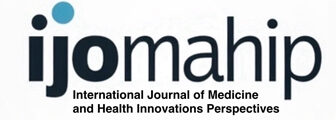IJOMAHIP Published Article Details
The International Journal of Medicine and Health Innovations Perspectives (IJOMAHIP) is an open-access, peer-reviewed journal dedicated to advancing knowledge in the fields of Medicine and Health Sciences fostering innovation, facilitating global knowledge exchange, and supporting collaborative efforts among researchers, clinicians, educators, and healthcare practitioners worldwide.
Nurses’ Perspectives on Medical Pluralism: Knowledge, Attitudes, and Safety Interventions in a Multicultural Context—A Mixed Methods Pilot Study
Medical pluralism, the simultaneous use of conventional medicine and complementary and alternative medicine (CAM), is widely practiced by patients from multicultural backgrounds. However, nondisclosure of CAM use to healthcare providers poses safety risks. Nurses play a crucial role in ensuring patient safety, yet little is known about their knowledge, awareness, attitudes, and interventions regarding medical pluralism. 3This mixed method pilot study assessed the knowledge, awareness, attitudes, and safety interventions of medical-surgical and telemetry nurses regarding patient engagement in medical pluralism. A sequential explanatory mixed-method design was employed. The study surveyed 150 nurses from two affiliated medical centers in Hawaii, followed by in-depth interviews with 15 participants. The survey assessed nurses’ knowledge, awareness, attitudes, and safety interventions regarding medical pluralism, while interviews explored workplace factors influencing nursing practice. Data were analyzed using descriptive and inferential statistics, along with thematic analysis of qualitative responses. Majority of nurses had low-to-moderate knowledge of CAM and medical pluralism, with most learning about CAM informally rather than through formal education. Nurses’ awareness of patients’ CAM use was largely dependent on patient disclosure rather than proactive assessment. Although many nurses expressed positive attitudes toward integrating holistic approaches, workplace environments often lacked clear policies or guidelines for managing medical pluralism. Safety interventions primarily involved interprofessional collaboration rather than independent nursing actions. The study highlights the need for enhanced nursing education and organizational policies to support nurses in addressing medical pluralism safely and effectively. Strengthening nurses’ knowledge and promoting proactive assessment strategies can improve patient safety and facilitate informed healthcare decisions. Future research should explore the impact of structured educational interventions on nurses’ competency in medical pluralism, as well as the development of standardized guidelines to enhance patient safety in diverse healthcare settings.
KEYWORDS: medical pluralism, nursing practice, complementary and alternative medicine, mixed-methods research, patient safety

